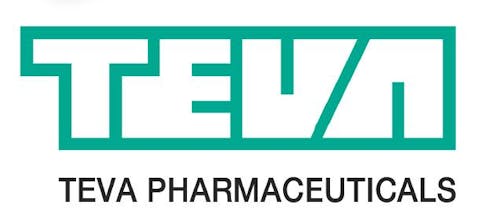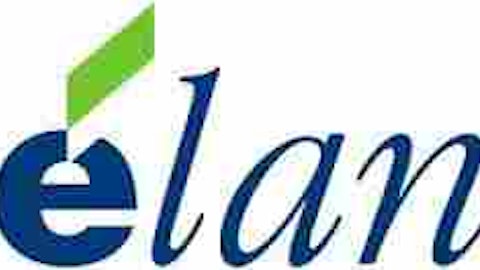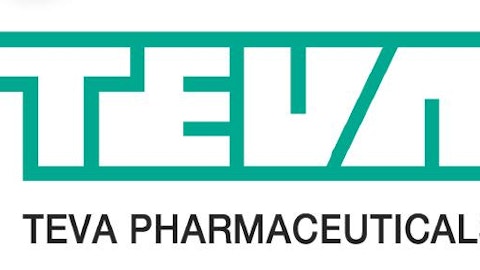Will generic pharmaceutical makers like Teva Pharmaceutical Industries Ltd (ADR) (NYSE:TEVA) and Perrigo Company (NYSE:PRGO) continue to be a value play after Obamacare kicks in next year?
That’s a fair question to ask because some of these companies seem to be on shaky ground now. Revenues and free cash flow have been falling without Obamacare.

Teva Pharmaceutical Industries Ltd (ADR) (NYSE:TEVA) saw its revenues fall by 8% in the fourth quarter of 2012 and a pretty big drop in its free cash flow. Perrigo Company (NYSE:PRGO), which has been a market favorite, has seen a drop in its free cash flow by about $35 million since the start of the year. For the record, Perrigo’s free cash flow was $126.31 million on March 31. To be fair, drug makers have a history of a drag in free cash in the first half of the year and a steep rise in the second.


Generics are heating up and starting to resemble a sort of feeding frenzy. Perrigo Company (NYSE:PRGO) has even started marketing to promote its products. The idea, of course, is to let consumers know that generics are out there. It may also be trying to market to the millions of new customers it might get courtesy of Obamacare.
Possible Obamacare Boost
Obamacare will increase the benefits available to a lot of Americans with health insurance. That probably means they might be able to buy more drugs. Obamacare also tries to close the Medicare doughnut hole, which should increase the number of prescriptions bought by senior citizens. If you’re under 65 and have never heard of the doughnut hole, that means Medicare will now cover a greater percentage of the cost of prescription drugs.
Of course if a feeding frenzy results, the big shark has the advantage, and in this tank, Teva Pharmaceutical Industries Ltd (ADR) (NYSE:TEVA) is the big shark. It has the money to run marketing blitzes and to give drugstores and other retailers incentives to move its products.
Obamacare Not a Cash Cow for Generic Drug Makers
The $1 million question in generic pharmaceuticals is how much of the new cash generated from Obamacare will they be able to keep? The tax credits and health insurance exchanges designed to offer health insurance to tens of millions of uninsured people are scheduled to come online in January.
On the surface, this would tend to benefit generic makers; after all, most health insurance plans encourage or in some cases mandate the use of generics. To be fair, most people don’t look at the brand name of their prescription the way they look at the brand name of their laundry detergent. They simply accept whatever the pharmacist hands them.
That means Obamacare may lead to more sales and possibly more revenues for generic pharmaceutical makers. Yet it could really hurt some smaller players, such as Actavis Inc (NYSE:ACT), because it will impose billions in new taxes on pharmaceuticals. Motley Fool analyst Dan Caplinger noted that a “Medicaid rebate” (Medicaid tax) alone could cost pharmaceutical companies $20 billion in the next ten years.

Actavis Inc (NYSE:ACT) is really vulnerable because its free cash flow has collapsed in the last year. The market favorite had $172 million in free cash in December 2012 but just $27.6 million on June 30, 2013.
Obamacare Taxes a Threat to Generic Pharmaceuticals
The question we have to ask is, where are companies with lower amounts of free cash going to get the money to pay those additional Obamacare taxes? They could pass it along to consumers, which is not likely given the increased competition in the generic sector.
The most likely answer is that they will restructure; by reducing expenses and eliminating dividends, these companies could avoid some of those taxes. Some news stories indicate that Actavis Inc (NYSE:ACT) is already restructuring.
Why Generic Drugmakers Need Obamacare to Work
In the long term gains from Obamacare, particularly new customers, may offset some of those tax losses. That, of course, depends on a major increase in the number of people buying prescriptions. If legions of new customers don’t appear at the pharmacy counters, all pharmaceutical makers will have to restructure to survive the tax hits.
There is another possible salvation for generic drug makers and that is overseas sales. Demand for drugs will increase overseas because the number of older people who need drugs is increasing. There will 220 million people over 60 in China alone by 2015. Fool blogger Paul Sangrey noted that Novartis was able to increase its sales in China by 22% in 2012 and by 15% in Russia in the same year. So there are some opportunities overseas that might off set any Obamacare tax losses.
Even though it seems illogical, generic pharmaceutical manufacturers face a volatile and uncertain future because of Obamacare. The law that should help them go “mainstream” but could make it harder for them to seize any new opportunities it creates.
Daniel Jennings has no position in any stocks mentioned. The Motley Fool has no position in any of the stocks mentioned.
The article Obamacare and Generic Pharmaceuticals originally appeared on Fool.com.
Copyright © 1995 – 2013 The Motley Fool, LLC. All rights reserved. The Motley Fool has a disclosure policy.




